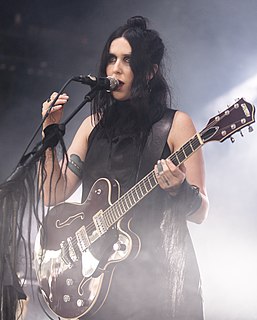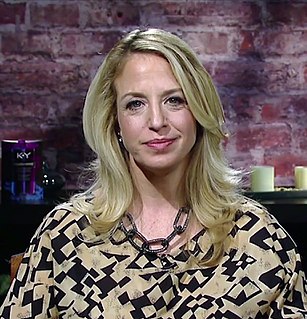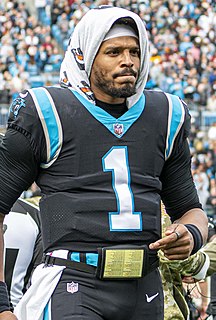A Quote by Lucy Corin
I really like the interplay between thinking of text as ephemeral and thinking of it as a concrete, physical thing. With almost anything that I write, I'll stay completely immersed in the electronic text of it for a period of time and in another period, I'll stay immersed in it as a physical thing that can cut your skin. So with the apocalypses, I had them taped all over the wall and they had codes on them. Sometimes I would color code them in terms of thematic elements, sometimes in terms of voice, sometimes visual forms or images.
Related Quotes
With Orff it is text, text, text - the music always subordinate. Not so with me. In 'Magnificat,' the text is important, but in some places I'm writing just music and not caring about text. Sometimes I'm using extremely complicated polyphony where the text is completely buried. So no, I am not another Orff, and I'm not primitive.
There were a lot of apocalypses that didn't make it into this assemblage because they didn't suit the world. And defining that world and figuring out what its wobbly borders were was a long-term and exhaustive process. I had all of these different ways of categorizing the apocalypses I had made. I had a period of time where I cut them up.
I've always had some sort of affinity for the ends of things. It depends on the song, I try to explore it in different ways. Sometimes when I think about death I'm thinking of it as a physical character that can teach you things and sometimes I'm thinking of it in a finite sense and other times I'm just asking questions that I can't answer. I don't really like to state my personal belief, because I change my mind too often, but I imagine something peaceful. Whether it's a rest or another world or some kind of eternity, it doesn't seem like a scary thing.
We've clearly entered a period in which the analog of text is no longer important or relevant. All text will be electronic. I accept that fact. My house has thousands of books in it, and I've started to look at them completely differently. They now seem to me to be like antiquarian objects. Their use value has become negligible to me because I'm perfectly happy to read on an e-reader.
You know, people sometimes say to me, 'Do you prefer to do this or that, act or do stand-up or write' but the thing that I enjoy most is the difference between all of them, because you're always learning. I don't go around thinking of myself as a great anything. I'm actually lucky to have the chance to fail at all of them.
Another thing is, people lose perspective. It is a cultural trait in America to think in terms of very short time periods. My advice is: learn history. Take responsibility for history. Recognise that sometimes things take a long time to change. If you look at your history in this country, you find that for most rights, people had to struggle. People in this era forget that and quite often think they are entitled, and are weary of struggling over any period of time
Generally, the imagery and the text go hand in hand. It's much easier when the text comes first, but sometimes I need visual stimulation in order to find the words. I get an idea of what I want when I begin to shoot, and the text is usually the last thing to be resolved. I tend to leave the text open, and I refine the words up to the last minute. As for the image, I can resolve that and get that done fairly quickly.
I never have [suffered writer’s block], although I’ve had books that didn’t work out. I had to stop writing them. I just abandoned them. It was depressing, but it wasn’t the end of the world. When it really isn’t working, and you’ve been bashing yourself against the wall, it’s kind of a relief. I mean, sometimes you bash yourself against the wall and you get through it. But sometimes the wall is just a wall. There’s nothing to be done but go somewhere else.
The images are visual, auditory, olfactory, kinesthetic. They aren't laid down on the same tracks as thought. And sometimes, when they return to you, it is as if you feel them for the very first time. Memory lives on in the details, like the color of a room, a tone of a voice, the touch of a child, the smell of a man.
I find interesting characters or lessons that resonate with people and sometimes I write about them in the sports pages, sometimes I write them in a column, sometimes in a novel, sometimes a play or sometimes in nonfiction. But at the core I always say to myself, 'Is there a story here? Is this something people want to read?'





































